Investors lose vote to share Covid vaccine know-howpublished at 00:09 BST 29 April 2022
Shareholders failed to get Pfizer, Johnson & Johnson and Moderna to share vaccine knowledge.
Read MoreShareholders failed to get Pfizer, Johnson & Johnson and Moderna to share vaccine knowledge.
Read MoreWe'll be back on Friday
That's all for now from the BBC Africa Live team for now, but we'll be back on Friday morning.
Until then you can find the latest updates on the BBC News website, or listen to our Africa Today podcast.
A reminder of our wise words of the day:
Quote MessageThere are no valleys, rivers or mountains on the way to a loved one's home."
A Kikuyu proverb sent by Rebecca Kariuki in Arusha, Tanzania
Click here to send us your African proverbs.
We leave you with this photo from Tunisia of a boy at a mosque in Kairouan on Wednesday evening as Muslims marked Lailat al-Qadr, (the Night of Power) - an event to remember how the Quran was first revealed to the Prophet Muhammad by God.
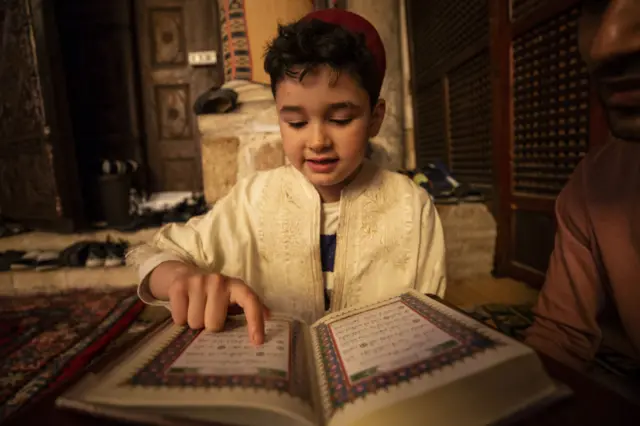 Image source, Getty Images
Image source, Getty ImagesThe head of Gabon's football federation is to spend at least 10 more days in prison after being questioned about the country's sexual abuse scandal.
Read More Nichola Mandil
Nichola Mandil
BBC News, Juba
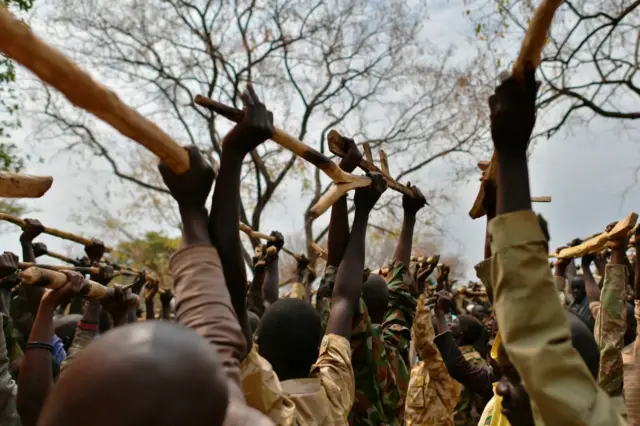 Image source, AFP
Image source, AFPThe formation of the unified army is a key part of the peace deal that ended the civil war
A group of 200 traders in South Sudan are demanding an estimated $100m (£80m) for food they supplied to training camps for soldiers over the last two years.
The suppliers were contracted by the National Transitional Committee (NTC), a body formed by the unity government to oversee the implementation of a peace deal that brings together rival sides which fought in the civil war into a unified army.
The traders also supplied non-food items such as tents, blankets, bed sheets and mattresses for soldiers in the camps. But some of them have not been paid since 2019.
Early this month, the government promised that their money would be paid by Wednesday.
A spokesman for the suppliers, Kasha Majok Kuol, told the BBC that some of their representatives went to the offices of the NTC chairman on Thursday.
“We were surprised to find security forces deployed around his office.
“What happened today really caught us by surprise - to find police and soldiers deployed around his office to deter us from getting to him.”
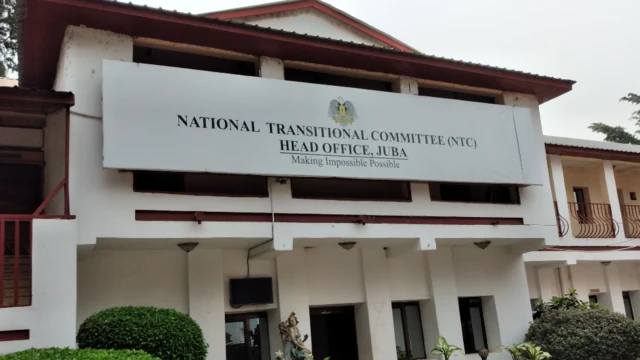 Image source, Nichola Mandil/BBC
Image source, Nichola Mandil/BBCThe slogan of the NTC is "making impossible possible"
When contacted by the BBC, Peace Building Minster Stephen Par Kuol, who is also the secretary general of the NTC, declined to comment.
He said the matter should be referred to the NTC chairman.
 Peter Jegwa
Peter Jegwa
Lilongwe, Malawi
A High Court in Malawi has found five people guilty of murdering an albino man and three others - a former Roman Catholic priest, a police officer and a hospital clinician - guilty of trading in his body parts.
MacDonald Masambuka went missing in February 2018 and when his body was discovered a month later, the legs and arms had been removed.
The 22-year-old man had albinism, which affects the production of melanin - the pigment that gives eyes, skin and hair its colour.
Over the past decade, Malawi has experienced gruesome attacks and killings of persons with albinism, fuelled by false beliefs that concoctions mixed with their body parts bring luck and wealth.
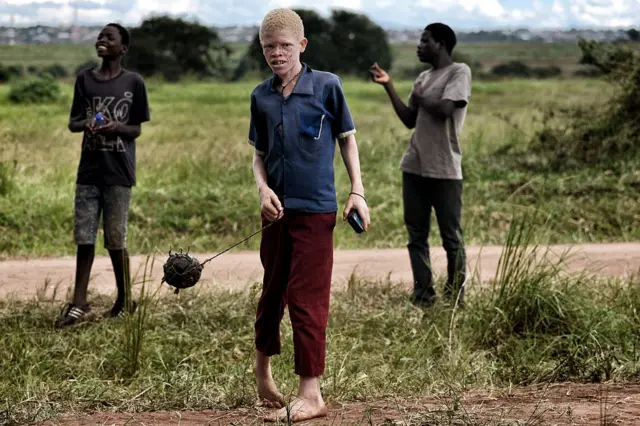 Image source, AFP
Image source, AFPMany people with albinism in Malawi feel vulnerable because of the high risk of attack
According to official statistics, more than 170 albinos have been killed or maimed since 2014.
The convictions at the High Court in Blantyre are the first of prominent members of society linked to the attacks.
They are to be sentenced at a later hearing.
You may be interested in:
Victor Muyakane
BBC News, Nairobi
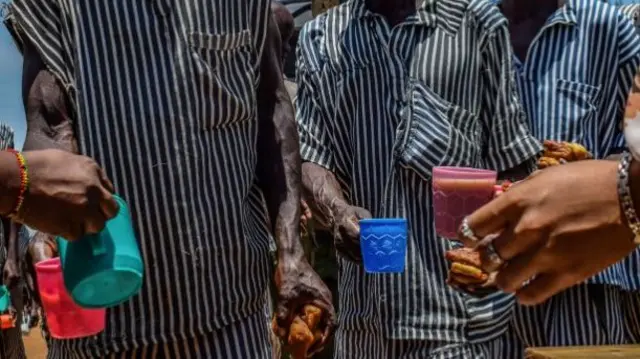 Image source, AFP
Image source, AFPMany of Kenya's prisons are overcrowded
Kenya has announced a plan to free up to 5,000 petty offenders from the country's jails.
Interior Minister Fred Matiang'i says the plan will be rolled out between May and June in an effort to decongest prisons.
He cites a lack of resources as the key reason for the move.
According to research group Prison Insider, the number of convicted inmates in Kenya's overcrowded jails stands at around 90,000. The number of prisoners on remand is unconfirmed.
Those whose offences range from failure to pay a small fine to minor parking violations will be transferred to the community service programme.
Brian Osweta
BBC News, Nairobi
More girls than boys are now completing primary school on time in sub-Saharan Africa, according to a report by the UN's education organisation (Unesco).
Last year, 66% of girls completed primary education at the age they were meant to finish, compared to 44% in 2000.
For boys, figures had also improved but not as dramatically - 61% finished in 2020, compared to 49% in 2000.
However, Unesco noted that unlike boys, girls were less likely to finish primary school if they had missed years when they were younger.
“There are more boys who are likely to finish primary school at an older age as they have no obligations compared to the girls whom once they have passed the normal age where one is expected to have graduated, which is around 13 years, start getting pressured into marriages or pregnancies,” said Manos Antoninis, director of the Global Education Monitoring Report 2022.
In Nigeria, one in five teenagers, mostly girls, are not in school because of marriage and pregnancy, the report shows.
When it comes to secondary education completion, girls have closed the gap with boys in junior years and have halved the gap with boys for more senior years.
Despite the progress, sub-Saharan Africa’s gender education gap is the biggest in the world - one in four young women are still illiterate in the region.
In order for more girls to complete their schooling, Unesco has called on non-governmental organisations to fill the gap in providing services.
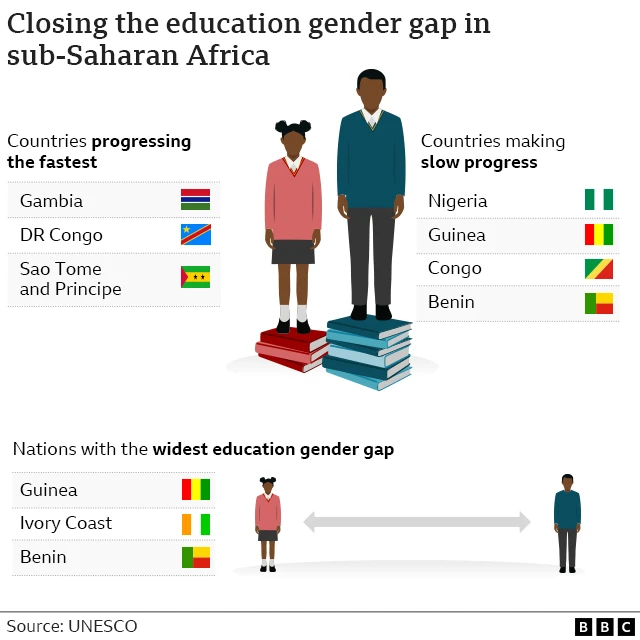
 Rhoda Odhiambo
Rhoda Odhiambo
BBC health reporter, Nairobi
Africa is experiencing an upsurge in Covid-19 cases, largely driven by a doubling of infections in South Africa, according to the World Health Organization (WHO).
Cases and deaths on the continent have increased, after a decline during the last two months, it said at an online press briefing.
In the past week, more than 11 million cases have been reported across the continent.
South Africa, which is now entering its winter season, has recorded the most infections and deaths on the continent so far.
The health ministry says most of the latest cases are in South Africa’s Gauteng, KwaZulu-Natal and Western Cape provinces.
A panel of experts has also warned that a sixth wave of the pandemic could begin in Kenya, but said the next wave would be milder than previous ones.
So far more than 300,000 Kenyans have tested positive for the virus.
Police say they are treating the latest incident, as well as the original theft, as hate crimes.
Read MoreSamba Cyuzuzo
BBC Great Lakes
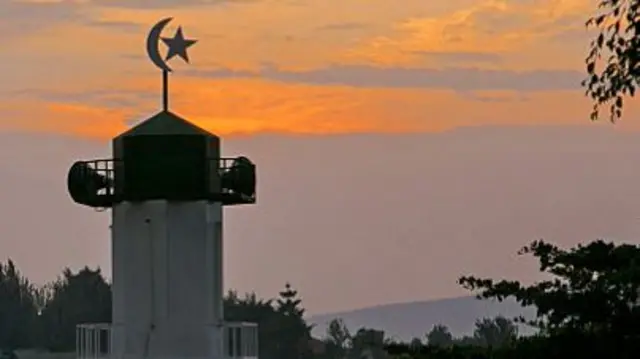 Image source, AFP
Image source, AFPIt is estimated that 10% of Rwanda's population is Muslim
A court in Rwanda has sentenced a Muslim cleric to five years in prison for killing a pig in a mosque.
Three witnesses told the court that they saw the imam, Sadate Musengimana, beating the pig with a piece of wood, killing it on the spot.
His lawyer says he killed the animal accidentally with a stick when he tried to chase it away from the mosque in the Kayonza district in the east of the country in February.
"When children shouted out about seeing a pig at the mosque, he stepped out to chase it away with a stick. He beat it and it died, but he had no intention to kill," his lawyer Yusuf Nsengiyumva told the BBC.
The lawyer said he had appealed against such a “harsh sentence”.
Musengimana has been in detention since February when he killed the pig.
Pigs are considered unclean by Muslims.
Former Uganda goalkeeper Denis Onyango picks up a record ninth South African league winners medal as Mamelodi Sundowns win their 15th title.
Read More Joice Etutu
Joice Etutu
BBC News, Naivasha
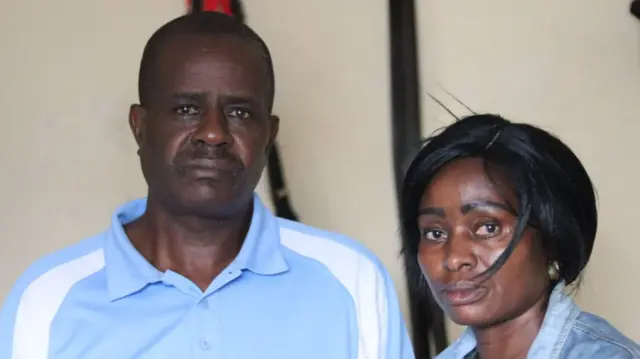
Sheila Lumumba’s parents want answers, describing their daughter as loving, kind and determined
The parents of a non-binary queer person who was brutally murdered and sexually assaulted in Kenya have pleaded for help in finding the killers of their “kind and head-strong” daughter.
“I want to see the people who killed my daughter, I would appreciate to just see them, and make sure action is taken,” Sheila Lumumba’s father told the BBC.
The killing of the 24-year-old, who identified as queer, sparked outrage across Kenya and the hashtag #JusticeForSheila began trending last week.
Several suspects have been interviewed, but police are yet to charge anyone with the killing that happened in Karatina, a town in Nyeri County.
Kenya has strict anti-gay laws, and rights groups say members of the LGBTQ community can often feel unprotected by law enforcement agencies, and routinely face discrimination and stigma.
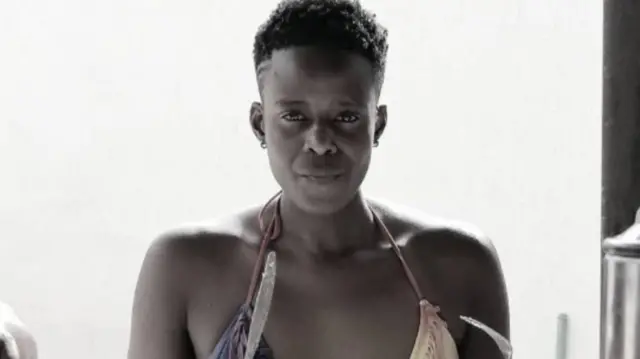 Image source, Sheila Lumumba/Facebook
Image source, Sheila Lumumba/FacebookSheila Lumumba's funeral is to be held later this week
We met Sheila’s mother and father at their home in Naivasha, a large town in Nakuru County.
John Lumumba and Milisens Oloo described their daughter as a loving, kind and determined person, adding that that they were proud of all Sheila’s accomplishments.
Brenda Oloo told the BBC that her cousin’s death was having a devastating impact on the family.
“We want to know why. The brutality of what they did to her, what did she do so wrong that they had to do all of that to her? It was with so much hate,” she said.
“We never imagined something bad could happen to her, she was so strong. We are still not in acceptance that she is gone.”
A network of NGOs in Kenya, including The National Gay and Lesbian Human Rights Commission, is supporting the family in their search for justice.
Sheila’s funeral will be held later this week.
Liverpool manager Jurgen Klopp praises the impact Senegal's Sadio Mane and Guinea's Naby Keita have made for the club this season.
Read MoreHuman rights groups criticise a court that convicted the two stars of "violating family values".
Read More Emmanuel Igunza
Emmanuel Igunza
BBC News
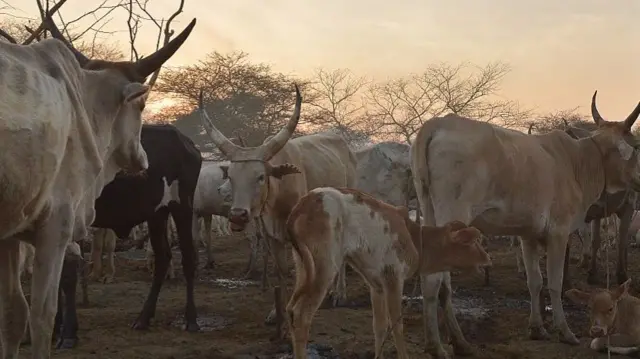 Image source, AFP
Image source, AFPCattle are an important source of wealth in South Sudan - and are often fought over
Horrific testimonies are emerging from South Sudan of people being beheaded, gang raped and burned alive following days of violence in Unity State.
At least 40,000 have fled their homes because of the inter-communal clashes blamed on cattle raiding and ethnic tensions.
Cattle were stolen during attacks and houses, humanitarian facilities and warehouses looted and burned to the ground.
Dozens of women reported being gang raped while others watched their families being beheaded or burnt alive.
Many of those affected had already lost their homes, livestock and property to floods that have swept across the country.
The UN has condemned the spike in attacks and urged the government to investigate the violence
It is feared it could threaten South Sudan’s fragile peace deal between President Salva Kiir and his former rival Vice-President Riek Machar.
Nearly seven million people are in urgent need of food aid, but a humanitarian appeal for more than $1.7bn (£1.4bn) in assistance remains hugely underfunded.
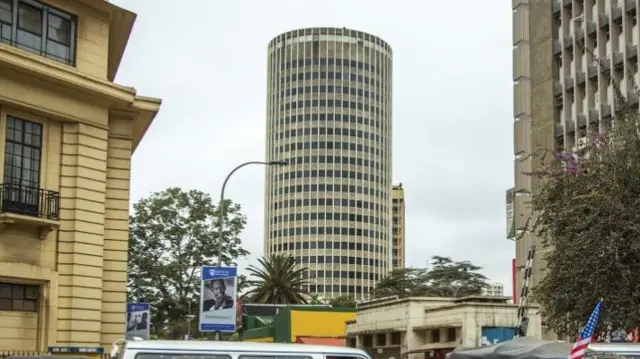 Image source, AFP
Image source, AFPThe iconic Hilton Nairobi (centre) was built in 1969
Kenya’s iconic Hilton Hotel - a multi-storey building that was once one of the tallest structure in the centre of the capital, Nairobi - will reportedly cease operations in December.
The hotel was built in 1969 - six years after Kenya gained independence from the UK - and has been a landmark feature of the city.
Its impending closure comes amid a slump in the tourism and hospitality sector arising from the Covid pandemic.
A number of big hotels in Nairobi shut operations, some indefinitely in the wake of the pandemic. Hilton says its closure is not linked to Covid.
It told Kenya's Business Daily newspaper that its closure would result in some of its employees losing their jobs while others would be redeployed to other businesses under its portfolio.
“Following extensive discussions with the hotel ownership, Hilton Nairobi will close its doors for the last time on 31 December 2022 and cease operations,” a Hilton spokesperson was quoted as saying.
The hotel, which 40 has 17 floors, with a total 287 rooms.
Maya Hayakawa
BBC Africa business journalist
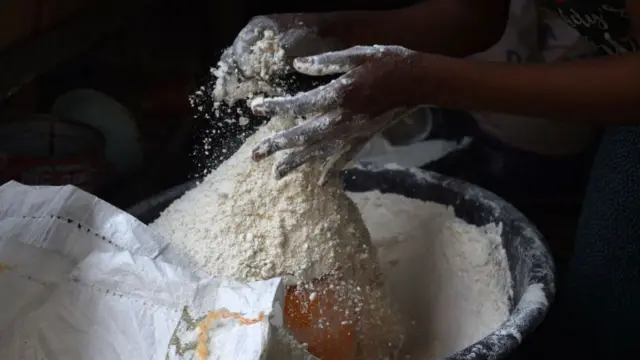 Image source, AFP
Image source, AFPWheat is forecast to increase by 42.7% and reach new record highs
The International Monetary Fund (IMF) has warned of a looming food crisis that may spark social unrest in sub-Saharan Africa.
The fund has revised its growth projection for the continent downwards to 3.8% from the initial 4.5%.
In its latest economic outlook, the IMF says the war in Ukraine has caused "a sharp increase in energy and food prices, that could undermine food security in the region, raise poverty rates, increase income inequality and possibly lead to social unrest".
Its report says the war has stalled growth momentum seen in the second half of 2021 as countries continue to battle the effects of the Covid-19 pandemic, deteriorating security in several countries and climate-related shocks.
The IMF suggests that sustainable growth will require:
You may be interested in reading:
Benin based group Star Feminine Band are making music to spread awareness of the rights of women and girls.
Read MoreThis was a key government demand to end its ban
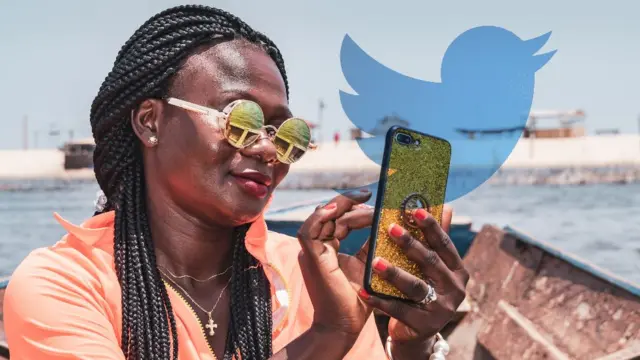 Image source, Getty Images
Image source, Getty ImagesMany Nigerians used Virtual Private Networks (VPNs) to bypass the Twitter ban while it lasted
Twitter says it has "established a legal entity in Nigeria", months after the social media firm agreed to conditions set out by the government for its service to be restored in the country.
Nigeria suspended the microblogging site last June after a tweet by President Muhammadu Buhari, that referenced the civil war, was deleted.
Twitter had said the post violated its rules; the government accused the company of taking sides.
The seven-month ban was lifted in January after Twitter agreed to various conditions, one of which was that it register in Nigeria before March.
A Twitter representative confirmed to the BBC that the company now had a legal presence in Nigeria but did not state when this had happened.
The company also told the BBC that it was complying with tax obligations in Nigeria, as it does globally.
Last year, Twitter announced that it was opening its African headquarters in Ghana and has since filled advertised roles.
The company has been in the news recently after its board agreed to a $44bn (£34.5bn) takeover offer from the billionaire Elon Musk.
You may be interested in:
Algeria coach Djamel Belmadi should be disciplined for criticising referee Bakary Gassama, according to The Gambia's football federation.
Read More